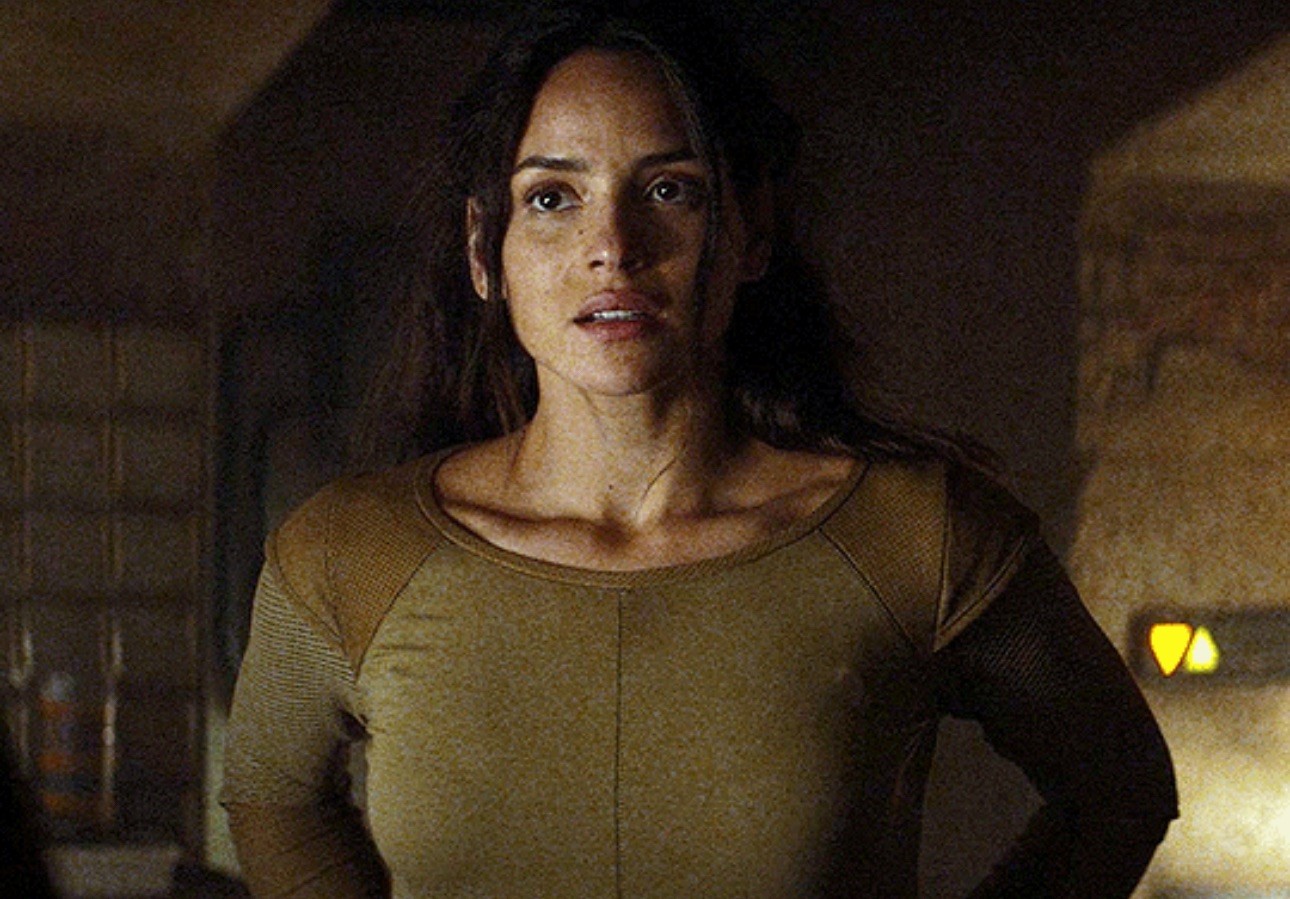— USS Andromeda, Conference Room 1 —
“There is nothing to be done captain,” T’Venik managed to sound both passive and cross at the same time.
At Captain Olivia Carrillo’s insistence they had been exploring options for saving the life of a Tosk who wanted to be hunted by the Hunters. It was a conundrum that had first faced the Federation over a decade ago with the opening of the wormhole and the arrival of the Tosk to Deep Space Nine. Now a Tosk had boarded the Andromeda when its shuttle’s engines had failed, and had drawn the Hunters to them.
Logistically, and tactically, the Hunters were no threat to the large Federation ship. Yet they were on a mission to rebuild the Federation’s reputation and flying around disrespecting cultures did not seem to be in the spirit of that. The Tosk had every right to choose how they wanted to die, and they had chosen to be hunted by the Hunters. Yes in Carrillo’s mind the justification did not outweigh that the death of the particular Tosk that had beamed aboard the USS Andromeda seemed to her senseless.
The Vulcan diplomat spoke to her as she might have a particularly illogical child, “We can not allow our morals developed on Earth or elsewhere to override our duty to the concept of infinite diversity in infinite combinations. You may not agree with the Tosk’s decision, but it is fundamentally his decision to make.”
“That’s a moral concept we’re applying to him as well,” Carrillo said, “We wouldn’t let him to choose to blow up the Andromeda.”
T’Venik looked at the other senior crew members, who were assembled around the conference table. She looked at them and then said, “Perhaps we can continue this discussion in private Captain. You clearly feel strongly about this”
Carrillo did not like being in conflict with the Ambassador but she felt that in this case Starfleet’s ‘live and let live’ philosophy was failing to protect the importance of life. The mechanics of how they should do this was not something she’d figured out yet, but the importance of trying to do something seemed paramount to her. She also realized that the Vulcan was at least trying to keep further dissent from being presented to the assembled crew. Carrillo was the captain, but the Vulcan seemed pretty firmly to believe that she was making a mistake.
Sighing Carrillo nodded, “Alright everyone, let’s meet in six hours. Update me on the status of everything then. We won’t make any major decisions until then. Ambassador let’s meet in my Ready Room in two hours. Take a break and we can both get something to eat and then talk this over.”
The Vulcan nodded, clearly thinking that this was putting off the conversation, but not wanting to overstep and be seen to be making decisions for the ship that fell well within the range of what the captain should be deciding on.
Rising Carrillo headed to her quarters. Where there adopted daughter was playing. She’d been a member of a race not too dissimilar to the Tosk, raised for the purpose of being hunted. An entire planet of her people, including her parents had been wiped out. Amiée smiled at her adopted mother as her adopted father Lieutenant Pierre Lambert entered the main living room.
“You look troubled,” Lambert said.
“I am,” admitted Carrillo, “though I know a Vulcan who would say that I’m being intransigent.”
“Perhaps you are, perhaps you aren’t” Lambert said, “But the key is getting to the right answer, not sticking to your first answer.”
“That almost sounded wise,” Carrillo teased.
“I am almost wise,” her husband joked.
—- USS Andromeda, Captain’s Ready Room —
“I will admit I’m not objective about this,” Carrillo said to T’Venik later that day.
“I am aware of your history and that of your daughter. The difference being her people were did not choose to be hunted, and in fact did not realize they were to be killed. There is a difference between her situation and that of the Tosk,” T’Venik said calmly.
“Can the Tosk make the decision that they want to be hunted,” Carrillo asked, “If they are genetically engineered are they capable of that decision.”
T’Venik inclined her head, “You are arguing that they are incapable of giving consent to being hunted. That they are in fact children, in a manner. It is interesting as an intellectual exercise, but I doubt that it leads to a workable solution. You would have to place the Tosk on our ship under arrest, and keep him as a prisoner indefinitely. Further you would make enemies of both the Tosk and likely the Hunters in a region that we were deployed to in order to make allies.”
“Sometimes you need to stand on principle, even when it’s not convenient,” Carrillo said.
“Perhaps, that is true. Yet it is also true that we cannot impose what we feel is right or wrong on other cultures. We cannot make the Klingons pacifists and we cannot make the Tosk want not to be hunted.”
Carrillo knew that even if she was right, she had no cards left to play in this situation. She wanted to save a life, a life of a man who did not want his life saved. If he was refusing medical care she’d let him refuse, but something within her wanted her to dig her heels in on this situation. Finally she nodded, “Fine, you’re right. There’s nothing we can do. I won’t like it but we’ll let the Tosk go, and let him run from the Hunters.”
T’Venik nodded, “Thank you Captain, I’ll make arrangements to facilitate his departure. And we will give him a head start before the Hunters give chase.”

 Bravo Fleet
Bravo Fleet








